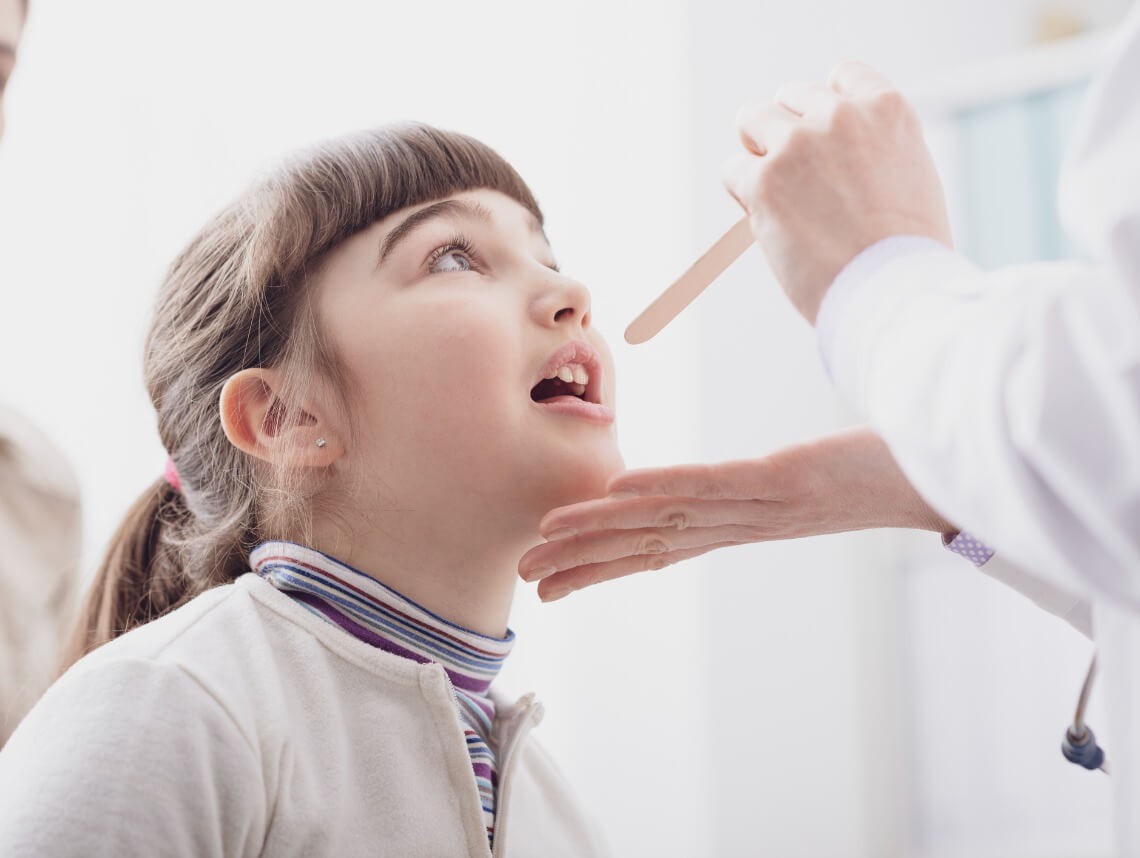Intussusception in children is a medical emergency and if your child exhibits symptoms of intussusception, they should receive immediate medical attention.
Although it is a serious diagnosis, intussusception is very often treatable through an enema or, in rarer cases, surgery. The most important aspect of care is diagnosing and treating this condition as soon as possible to avoid serious complications.
This guide will help you better understand intussusception in children, including the causes, symptoms, treatments, and how to meet care needs.
What is intussusception?
Intussusception in children occurs when part of the intestine folds into another part of itself. This condition is similar to how a collapsing telescope folds, and when this telescoping occurs in the bowels, it can be a very serious condition.
The most common cause of intestinal obstruction in very young children under three, intussusception most frequently develops between the ages of six to 18 months.
The folding can cause a blockage, resulting in digestive problems and painful symptoms. Intussusception can also result in loss of circulation, perforation of the intestine, and infections, especially if it is not treated promptly.
Intussusception Causes
In many cases, particularly in children, doctors cannot identify the cause of intussusception. In some cases, a virus may be an underlying contributor due to an overlap of flu-like symptoms that is often present. In other children, a pouch-like area in the small intestine, called Meckel’s diverticulum, may be identified as the source.
Intussusception Risk Factors
Risk factors that increase the chances of intussusception include:
- Cold weather: The condition is more common in the fall and winter
- Age: Intussusception in children typically develops before 18 months
- Sex: Boys are slightly more likely to deal with an intussusception episode
- Other conditions: Diagnoses including celiac disease, Crohn’s disease, and cystic fibrosis can make intussusception in children more likely
- Birth defects: An irregular intestinal formation known as intestinal malrotation can increase the risk of intussusception
Intussusception Symptoms
The most common symptoms of intussusception in children include:
- Belly pains
- Sudden loud crying
- Pulling knees to the chest while crying with periods of calmness
- Blood and mucus in the stool
- A visible lump in the abdominal region
- Lack of energy
- Loose stool or diarrhea
- Vomiting
All of these symptoms do not need to be present for a child to have intussusception. If your child is dealing with any of these symptoms, it is important to seek immediate emergency medical attention to prevent worsening or developing complications.
Intussusception Complications
Serious complications related to intussusception include:
- Blockage of blood supply to the intestine
- Tissue death in the intestinal wall
- Perforations of the intestine
- Infection of the intestinal lining, called peritonitis
- Septic shock
- Loss of consciousness
Diagnosing Intussusception
To confirm a case of intussusception in children, doctors and other health care providers will usually take the following steps:
- Discuss symptoms with the family
- Review medical history
- Perform a physical examination to check for lumps in the belly or other abnormalities
- Order a diagnostic imaging of the area such as an ultrasound, X-ray, or computerized tomography (CT) scan to confirm the presence of coiling or obstruction in the intestine and/or perforation
- Perform an enema, including an air enema or contrast enema, to confirm the blockage
In many cases, enemas can be both a diagnostic step and a treatment measure.
Intussusception Treatment
Intussusception treatment is usually performed on an emergency basis. In most cases, an air or liquid enema can help fix the blockage without the need for surgery. In rare situations, the enema may need to be repeated if intussusception returns within 72 hours.
If an enema doesn’t work, if the child is too sick, or if there is a perforation, surgery may be needed. In the most severe cases, part of the bowel may need to be removed if there is serious damage and the blockage cannot be repaired.
Caring for a Child with Intussusception
Before treatment, parents should avoid administering any medication or feeding if they suspect intussusception is the source of symptoms. The quicker the condition is diagnosed and treated, the fewer the chances for more serious complications and more extensive treatment.
After treatment, children will generally require careful monitoring to ensure symptoms do not return. If surgery is needed, children will usually be kept in the hospital for monitoring and IV feedings to help restore nutrients and prevent dehydration. Antibiotics will often be prescribed to lessen the chance of an infection.
In most cases, children recovering from intussusception will not have long-term care needs beyond staying hydrated and fed, and monitoring for recurring cases or infection. Many families turn to the support of pediatric home health services to help manage care and recovery needs for intussusception while balancing busy schedules.
A caring and well-trained home health professional can help with various needs, including administering prescribed medications, helping with nutrition, and accompanying children to follow-up appointments.
Contact Care Options for Kids for Home Health Care
It can be hard to balance your time between work, home, and caring for a child. That’s why our team of skilled professionals at Care Options for Kids is here to help. We have been enforcing precautionary measures and following the Centers For Disease Control (CDC) guidelines for COVID-19 to ensure the safety and health of our clients and employees.
Our home health care services offer one-on-one support in the comfort of your home. We refer loving and competent nurses to provide customized care for families — from a few hours a day to around-the-clock supervision. Contact us directly to speak with a home health care professional or request a free in-home assessment. Together we can determine the best plan of action to keep your loved ones happy and healthy.
If you or a loved one are considering pediatric home health care services, contact the caring staff at Care Options for Kids. Call today at (888) 592-5855.






